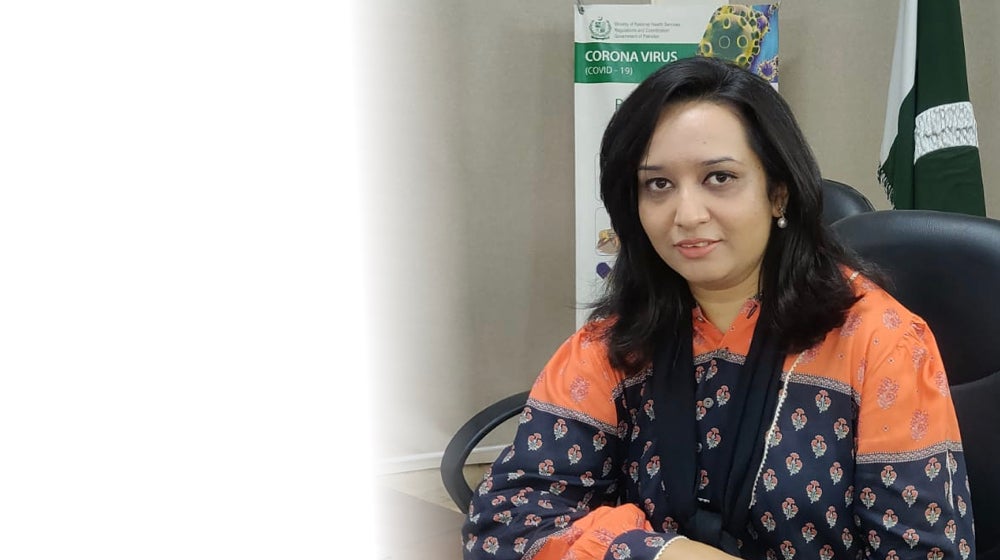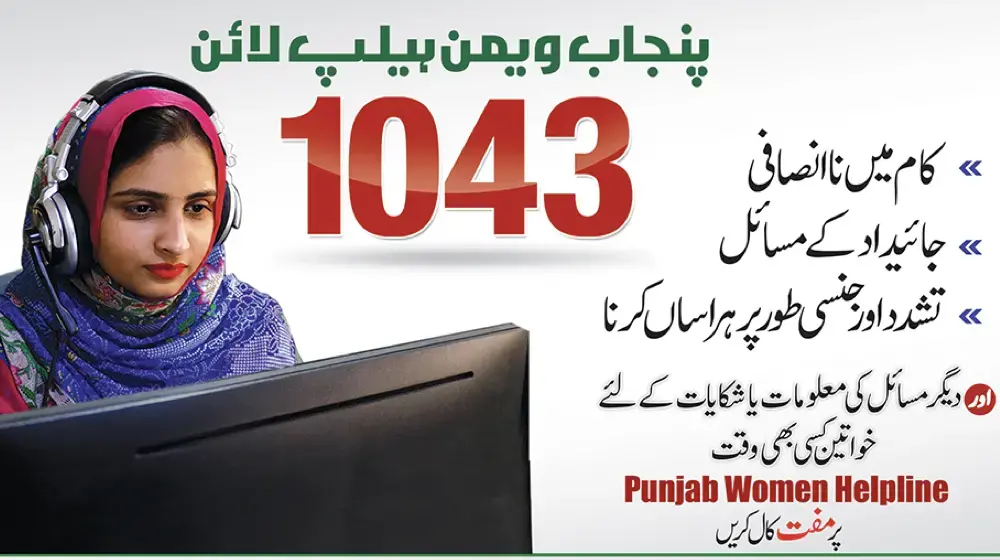“We make regular follow-ups to make sure they are safe”
“We make regular follow-ups to make sure they are safe”
Madeeha Munawar is a Legal Advisor with the 1043 helpline for survivors of gender based violence in Pakistan. Through its implementing Partner, UNFPA worked with Punjab Women Development Department to train the staff of 1043 helpline on gender based violence prevention and response to ensure that quality and ethical standards are met.
“I learned the survivor-centered approach and behavior mechanisms that helped me deal with complex cases,” Madeeha says.
She receives complaints every day, mostly of domestic violence cases and cyber harassment. “I feel strongly for victims of domestic violence with disabilities. They are often trapped in abusive relationships because they do not have a way out.”
Madeeha is concerned about major gaps in the services for women who are physically abused or beaten. “They muster up the courage to go to the police station and sometimes they are turned down. Women are told there are no marks of brutal beating and no injury which can be proven in a medical report.”
There have been cases where women have been told, “A slap or two would not harm you,” she says.
Madeeha has been involved in cases when women are beaten with physical marks or broken bones but then the report is not registered because the husband is influential and he bribes the police. “These are the challenges of the system that we deal with every day. This does not reduce our passion and commitment to help these women.”
“Their role is critical in helping the victims of gender-based violence. We work closely with victims and survivors. We make regular follow-ups to make sure they are safe.”
She says the police need to be sensitized and better trained. “Their role is critical in helping the victims of gender-based violence. We work closely with victims and survivors. We make regular follow-ups to make sure they are safe.”
The aim is to empower survivors to make their own decisions once they are informed about legal options and their rights. “Sometimes women facing violence and abuse decide to go back to the abusive situation. But I tell them that they are not alone: we are with them.”
For cybercrime violence, girls face multiple challenges as the cybercrime department of the police is short-staffed. “They are overwhelmed with complaints and sometimes the photos or videos of a victim have gone viral before the authorities could look into it.”
“Sometimes women facing violence and abuse decide to go back to the abusive situation. But I tell them that they are not alone: we are with them.”
She says these cases are time-sensitive and can damage a girl’s reputation and her mental health. They worked with the police to expedite the cases. This faster processing helped save girls from the trauma that publicly shared photos might have caused them. “Most of the girls are scared of their families. They worry about their reputation. The girls are scared of going to the police due to cultural stigma.”
Some of the girls are even suicidal as a result of online violence, so she understands how urgent action can save lives. Madeeha makes sure the callers get psychosocial support and counselling.
"The girls are scared of going to the police due
to cultural stigma.”
The team at the 1043 helpline are in close contact with government departments including shelters, police stations, hospitals and emergency services to ensure that all women experiencing violence receive the support they need.



